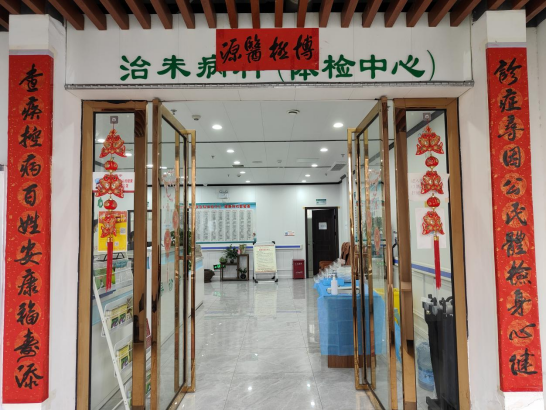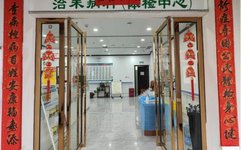
 Significance of Medical History Inquiry by Doctors
Significance of Medical History Inquiry by Doctors
When we undergo a health check-up or visit a hospital, we often encounter doctors asking about our medical history, also known as inquiry. The information obtained through this inquiry plays a positive role in understanding the occurrence, development, and treatment process of diseases. Past health conditions and previous illnesses are extremely important for diagnosis and provide essential basic information for subsequent physical examinations.
Most of our health check-up clients are willing to communicate with doctors and share their past illnesses or discomfort symptoms. However, some clients are reluctant to disclose their medical history, thinking, “Let’s see what you find; health check-ups are about checking, not asking. Let’s see how skilled you are.” They freely discuss their conditions during consultations but remain silent during check-ups.For example, one client, when lying on the examination bed, responded to the doctor’s inquiry about his medical history with, “You check first,” and then refused to say anything further. This was his first visit to our hospital’s (Preventive Health Department) check-up center, and there was no information about his past medical history in the abnormal history section. After examination, the doctor found he had a gallbladder polyp and advised regular follow-ups in the health check report. The client’s refusal to share his medical history was an attempt to test the doctor’s skills, but he missed the opportunity to compare the current positive findings with last year’s situation and to consult with the doctor. If the gallbladder polyp develops slowly and he has no discomfort symptoms, it can be monitored; however, if it grows rapidly and exceeds 1 cm, surgery should be considered. Thus, this approach was not beneficial for the client.
Another client had a completely different experience. During an ultrasound examination, the doctor discovered a mass in his liver, measuring 3.9 cm, suspected to be a hepatic hemangioma. Without last year’s historical records, the doctor was concerned that the mass was too large, and if it had grown this much in a year, there might be a possibility of malignant changes. However, the client proactively informed the doctor that he had a 3.8 cm hemangioma in his liver three years ago, which had been confirmed by a CT scan at the hospital. The doctor, having understood the medical history and made comparisons, noted that the growth was only about 0.1 cm over three to four years, which was not significant. The client also had no discomfort symptoms, and after considering other examination indicators from the (Preventive Health Department) check-up center, the doctor reassured him that there was no need for concern and that regular follow-ups would suffice.
We must understand that neither doctors nor instruments are infallible. If clients do not speak and doctors do not ask, many bodily abnormalities may be overlooked. Essentially, a health check-up is a broad process of medical examination, and medical history inquiry is an indispensable part of it. Information regarding past health history, current illness history, family history, lifestyle, and medication treatment is crucial for collecting and comprehensively evaluating health check-up information, directly impacting the quality of the check-up.
The doctor’s inquiry during the health check-up is a collection of key medical histories, conducted in a relatively concise format and adjusted in sequence. As the inquiry progresses, the doctor gradually forms diagnostic hypotheses, determining which organ may have issues. Therefore, the inquiry itself is a process of collecting objective data and the doctor’s subjective analysis interacting continuously. Establishing and revising hypotheses is a highly intellectual activity for doctors, not merely a simple act of asking questions and gathering materials. Once the doctor understands the key medical history, they can conditionally select the focus of the physical examination, and the results will support, revise, or refute the diagnostic hypotheses established in the medical history, ultimately leading to a correct diagnosis.We hope every client values the narration of their past and current illness history and cooperates with doctors in collecting medical history.
Introduction to the Preventive Health Department (Check-up Center)
The Preventive Health Department (Check-up Center) of Qianxi City Traditional Chinese Medicine Hospital was established in May 2013. It mainly consists of Traditional Chinese Medicine outpatient services, TCM constitution identification (TCM check-up), Western medicine health check-ups, and traditional treatment outpatient services. It is a comprehensive primary clinical department integrating outpatient services, health assessments, and health interventions. Centered around the specialized positioning of “expanding communication, highlighting characteristics, serving society, and promoting health,” and adhering to concepts such as “preventing disease before it occurs, recognizing subtle signs, treating diseases early, preventing changes in existing diseases, and preventing recurrence after recovery,” our department responds to the national strategic shift from “disease treatment-centered” to “health promotion-centered.” We fully leverage the advantages of Traditional Chinese Medicine, using traditional treatment methods (moxibustion, herbal point application, acupuncture, meridian scraping, tuina, cupping, herbal foot baths, herbal teas, etc.) as the main methods to intervene in the disease progression, conduct health check-ups, provide medical guidance and consultation, and regulate sub-health conditions, implementing the “preventive health” project.


 Important Notice
Important Notice
Working Hours:
Monday to Friday (8:00—17:30), Saturday and Sunday (8:00—12:00)
Address: Qianxi City Traditional Chinese Medicine Hospital, Jin Street Campus (Liancheng Jin Street A District, Building A3, 2nd Floor)
Phone: 0857—4713268, Director Yang 18786599667
Source: Qianxi City Traditional Chinese Medicine Hospital
Correspondent: Yang Fa, Preventive Health Department (Check-up Center)
END Scan to Follow Us关注健康体检拥有健康人生
Scan to Follow Us关注健康体检拥有健康人生

